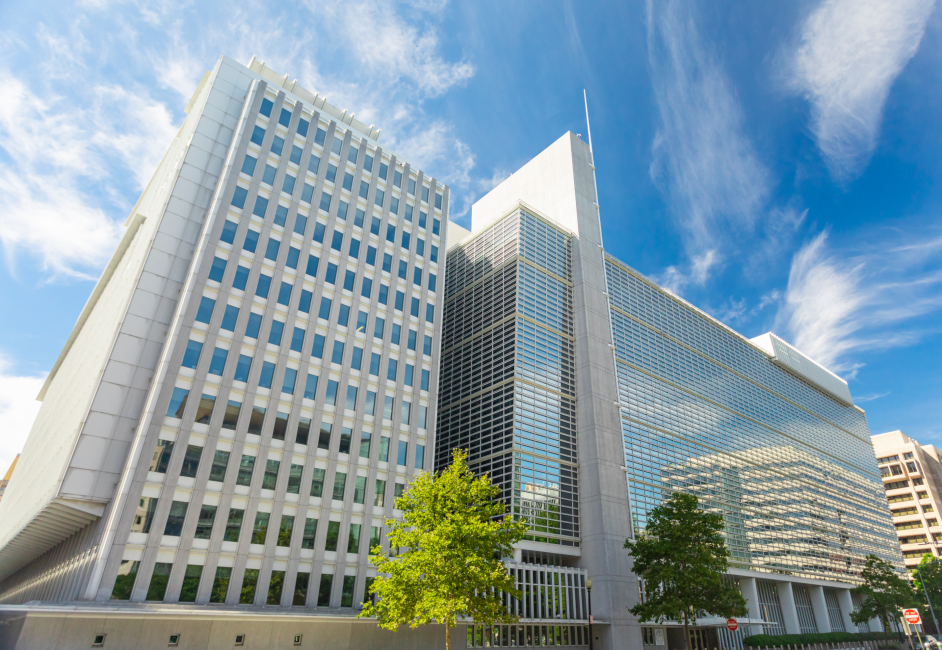
The United States is excluding the World Bank’s International Development Association (IDA) from complying with the Securities Act of 1933 and the Securities Exchange Act of 1934.
The exemption from U.S. securities laws generates substantial savings for the International Bank for Reconstruction and Development (IBRD), the International Finance Corporation (IFC) and Multilateral Development Banks (MDB), the World Bank said.
It enables the institutions “to negotiate private placements directly with U.S. investors, make sales of public benchmark bonds to State and municipal treasury portfolios around the United States, and place short-term paper in the U.S. market at very low rates.”
They can do all that while complying with SEC regulation however, so the exclusion is mainly because it “reduces legal expenses.”
“Currently, IDA issues securities to qualified institutional buyers in the costly, so-called Rule 144A/Regulation S market, but each issuance requires a substantial lead time and legal expense with the need to produce a full-fledged prospectus.
With a securities exemption, IDA could take advantage of favorable market windows, issue a less expensive mix of short and medium term benchmarks and privately placed securities, and reduce its transaction costs,” the World Bank said.
This is estimated to cost SEC less than $500,000, according to the Congressional Budget Office, and yet the World Bank estimates not securing the exemption would cost them $700 million.
This raises the question of whether SEC is no longer fit for purpose, because if even a global organization funded by governments with tons of money finds it burdensome to comply with SEC regulations, imagine a startup with just $100,000 in seed investment.
The estimated cost of $700 million by the World Bank in addition highlights just how expensive SEC compliance has become, which most likely is stifling innovation in the United States where industries have largely stagnated outside of tech.
Commercial banks however get an exemption from complying with any SEC regulations, leading some to claim SEC is an anti-competitive vehicle that protects banks and their loaning business from competition through public fundraising.
Not least because the World Bank itself effectively claims SEC regulations are pointless in stating:
“IDA will continue to be subject to anti-fraud liability under the securities laws and would be expected to meet the same disclosure obligations as other MDBs.
As in the case of IBRD, actions may be brought against IDA in courts of competent jurisdiction in the territories of any member in which IDA has issued securities.”
This echoes the argument made by many businesses and entrepreneurs: enforce anti-fraud, theft and other criminal law, while requiring basic disclosure, but leave civil law to lawsuits in court by investors.
Unfortunately however, while the Biden administration is moving on the World Bank with it looking to pass H.R. 1161, Aligning SEC Regulations for the World Bank’s International Development Association Act, it is not lifting the finger at all to help startups and other innovative businesses sinking under SEC’s red tape.
- SEO Powered Content & PR Distribution. Get Amplified Today.
- Platoblockchain. Web3 Metaverse Intelligence. Knowledge Amplified. Access Here.
- Minting the Future w Adryenn Ashley. Access Here.
- Source: https://www.trustnodes.com/2023/04/18/us-excludes-world-bank-from-sec-regulations
- :has
- :is
- 000
- a
- According
- Act
- actions
- addition
- administration
- ADvantage
- against
- All
- and
- anti-fraud
- any
- ARE
- argument
- around
- AS
- Association
- At
- Bank
- Banks
- basic
- BE
- because
- become
- Benchmark
- benchmarks
- biden
- Biden Administration
- Bonds
- brought
- budget
- business
- businesses
- buyers
- by
- CAN
- case
- claim
- claims
- competent
- competition
- compliance
- Congressional
- continue
- CORPORATION
- Cost
- Costs
- could
- Court
- Courts
- Criminal
- Development
- directly
- disclosure
- each
- effectively
- enables
- entrepreneurs
- estimated
- Even
- exchange
- excluding
- expected
- expenses
- expensive
- finance
- finds
- finger
- fit
- For
- from
- full-fledged
- funded
- Fundraising
- generates
- get
- Global
- Governments
- Have
- help
- highlights
- How
- However
- HTTPS
- in
- industries
- Innovation
- innovative
- Institutional
- institutions
- International
- investment
- Investors
- issuance
- issue
- Issued
- issues
- IT
- ITS
- itself
- jurisdiction
- largely
- Law
- Laws
- Lawsuits
- lead
- leading
- Leave
- Legal
- liability
- lifting
- likely
- longer
- looking
- Low
- low rates
- made
- make
- make sales
- many
- Market
- May..
- medium
- Meet
- member
- million
- money
- most
- moving
- multilateral
- municipal
- Need
- obligations
- of
- Office
- on
- organization
- Other
- outside
- Paper
- pass
- Place
- placements
- plato
- Plato Data Intelligence
- PlatoData
- portfolios
- private
- produce
- public
- purpose
- qualified
- question
- raises
- Rates
- Red
- reduce
- Regulation
- regulations
- requires
- Rule
- s
- Said
- sales
- same
- Savings
- SEC
- securing
- Securities
- Securities Laws
- seed
- Short
- short-term
- So
- some
- startup
- Startups
- State
- States
- subject
- substantial
- Take
- tech
- territories
- that
- The
- the world
- theft
- their
- Them
- Through
- time
- to
- tons
- transaction
- transaction costs
- treasury
- Trustnodes
- u.s.
- U.S. Securities
- under
- United
- United States
- us
- vehicle
- whether
- which
- while
- will
- windows
- with
- world
- World Bank
- would
- zephyrnet













